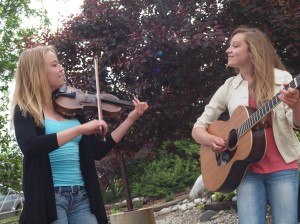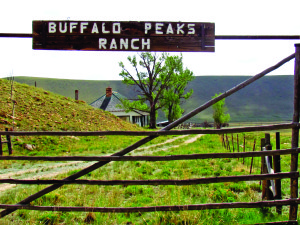I went to Aspen last weekend because Ed’s book, Deeper Into the Heart of the Rockies, which was compiled and edited by our daughter Abby, was a finalist in the Colorado Humanities 23rd annual book awards. We didn’t win, but it was nice to see the stunned joy other writers displayed upon winning. Perhaps more inspiring, however, was how much Aspen made me realize that I prefer Salida.
Aspen is beautiful but crowded, noisy, and full of traffic, and it doesn’t have nearly as many close walking trails as we do.
But the people and businesses in Aspen are much nicer than they were when I first went there in 1970. Aspen has matured and lost its early air of pretension and hauteur. The residents aren’t so overdressed and everyone seemed small-town friendly, including the staff of all the businesses I went into and the half dozen strangers I asked for directions.
But when I gazed out of a window at the Hotel Jerome and saw the multimillion-dollar homes on the mountainside, I thought about the first time Ed and I were in Aspen. Everything has changed in the last forty-four years. Now Ed is gone, and Independence Pass is free of the big campers and trailers that used to make it a menace. And Aspen is so much bigger, more prosperous, and grander.
Ed died on June 3, 2012, two years and ten days before my Friday the 13th pilgrimage to Aspen. And during that time I’ve realized that nothing in this world is more important than your relationships – and in that category I include your relationships with people and your home and community.
But relationships are not something you can necessarily control or preserve. Since Ed died, I’ve been shocked by how many of my friends have died, or gotten divorced, or moved away, or been stricken by devastating illnesses or expenses that seem to be changing everything for them.
I suspect that life has always been so fragile, but I didn’t notice it until after Ed’s funeral, when so many people reached out to me that it inspired me to try harder to reach out to others in distress.
Recently a friend expressed his objections to a column I wrote about gentrification. “You seem upset,” he said.
“Yeah, a little,” I admitted.
“But you shouldn’t be,” he said. “Some people just can’t accept change.”
“But that’s not true,” I blurted, mostly because I was too surprised to keep my response to myself, but also because I don’t believe that. What I believe is that very few people are afraid of change; change is inevitable and inescapable. What we fear is loss.
I think the City of Salida’s critics are upset because they worry about the spiraling prices of homes, rents and utilities and fear that they won’t be able to hold on if costs keep rising. But my friend insists that the complainants were ruining our river, and don’t even want to pay for water and sewer treatment, which strikes me as over-the-top.
But his criticism made me realize that those who question Salida’s priorities and spending aren’t the only ones who fear loss. Salida’s defenders also fear it; they fear the loss of financial opportunities, amenities, lifestyles, property values, and their stake in the community.
In 1978, Ed was the temporary editor of the Summit County Journal in Breckenridge, a city that was changing and developing rapidly. When a snowplow skidded on the ice on Main Street and tipped over, Ed put the picture on the front page and the merchants protested. “How could you?” they demanded. “People will think the roads are icy here and they won’t come.”
The merchants’ association also clamored after Ed reported that the policewoman who was directing traffic on Main was downed by a sliding car. They complained whenever Ed reported that the ski area’s snow ratings were less than optimal. Ratings, they insisted, should only be reported when they are excellent. Finally, they insisted that Ed be fired because he wouldn’t quit reporting bad news, and “bad news is bad for business.”
The Journal’s owner rebuked Ed because everybody kept calling and griping at him. “Fine, fire me,” Ed said, “because I’m not going to put out a newspaper without any news in it.” But sadly for Ed, the owner didn’t want to answer to the merchants, either, and he ended up insisting that Ed stay the next few months as they’d previously agreed upon.
Rapidly changing places are conflicted places; that’s old news. So all across the country, and in every state in the union, there are places where the citizens are locked in heated disputes. And given the nature of politics today, both sides have likely divided into factions that nurture distrust, suspicion and fear.
And now, in countless places on countless issues, citizens are insisting that the other side is ruining everything. But in doing so, we sacrifice the most precious thing life offers: just and caring relationships.
Martha Quillen lives in Salida where she wonders: Now that the climate is getting warmer, do you think we can start growing olive branches?



